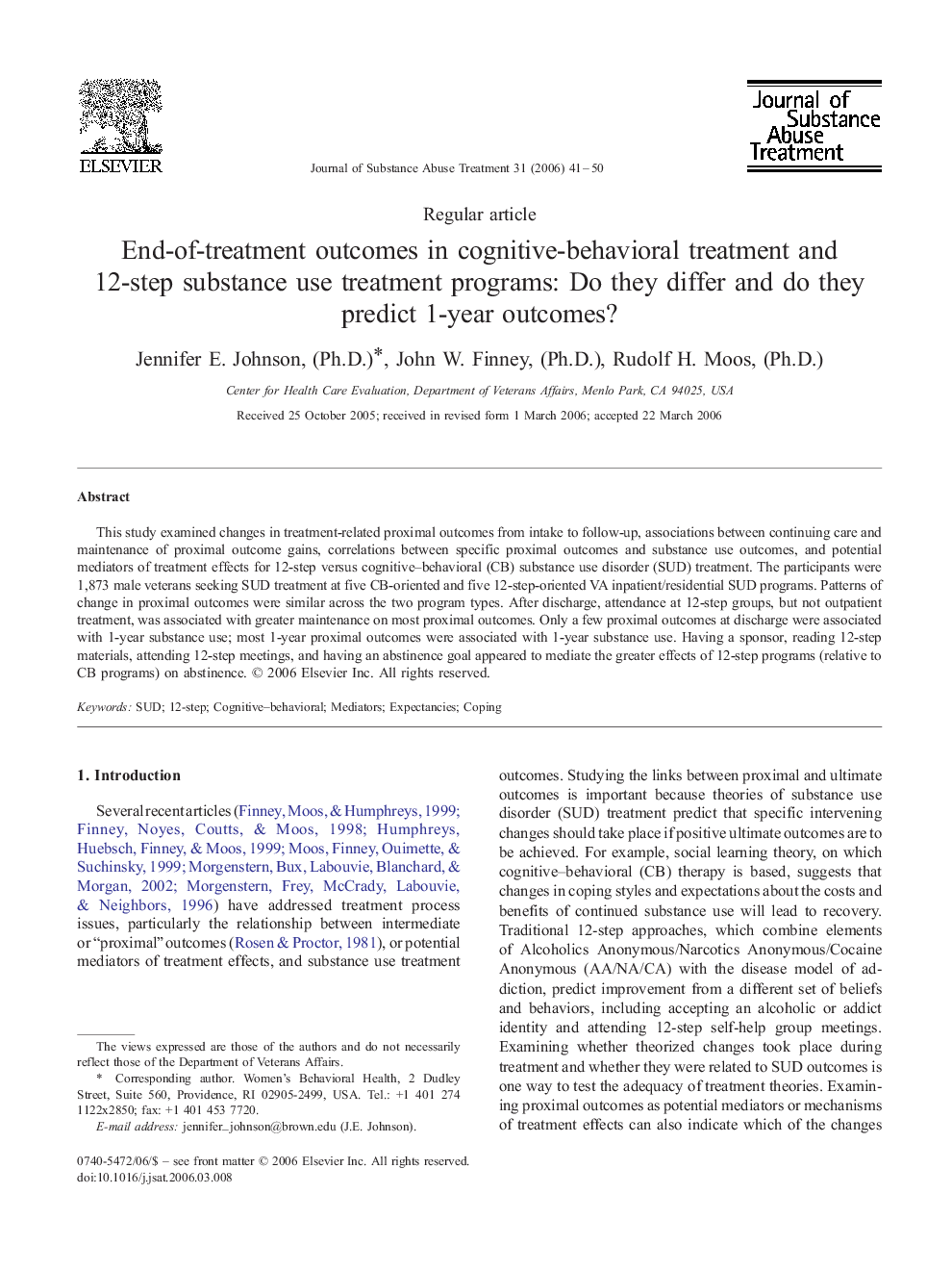| کد مقاله | کد نشریه | سال انتشار | مقاله انگلیسی | نسخه تمام متن |
|---|---|---|---|---|
| 328581 | 543286 | 2006 | 10 صفحه PDF | دانلود رایگان |

This study examined changes in treatment-related proximal outcomes from intake to follow-up, associations between continuing care and maintenance of proximal outcome gains, correlations between specific proximal outcomes and substance use outcomes, and potential mediators of treatment effects for 12-step versus cognitive–behavioral (CB) substance use disorder (SUD) treatment. The participants were 1,873 male veterans seeking SUD treatment at five CB-oriented and five 12-step-oriented VA inpatient/residential SUD programs. Patterns of change in proximal outcomes were similar across the two program types. After discharge, attendance at 12-step groups, but not outpatient treatment, was associated with greater maintenance on most proximal outcomes. Only a few proximal outcomes at discharge were associated with 1-year substance use; most 1-year proximal outcomes were associated with 1-year substance use. Having a sponsor, reading 12-step materials, attending 12-step meetings, and having an abstinence goal appeared to mediate the greater effects of 12-step programs (relative to CB programs) on abstinence.
Journal: Journal of Substance Abuse Treatment - Volume 31, Issue 1, July 2006, Pages 41–50